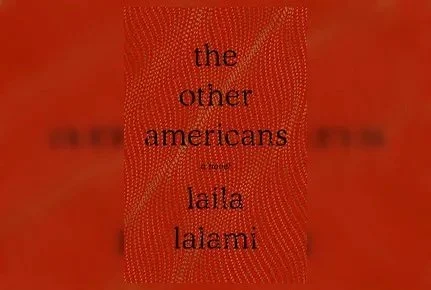Review: The Other Americans by Laila Lalami
By Jared Jackson
Image courtesy of Pantheon books
“My father was killed on a spring night four years ago, while I sat in the corner booth of a new bistro in Oakland,” begins Nora, one of the many narrators from Laila Lalami’s new novel, The Other Americans. It’s the event that shapes the novel, establishing the foundation for a story that reflects on the hollowness of grief, the weight of secrets, the challenges of family, and the meaning of home.
Set in the arid landscape of the Mojave, Lalami weaves together a cast of characters that find solace in revealing the details of their lives, which in time provide the puzzle pieces necessary to address the mysterious death of Driss Guerraoui, a Moroccan immigrant, who even provides his own commentary on events. Among the other narrators include a housewife, a small business owner, a war veteran, and an undocumented immigrant, each filling in the narrative for another’s account, providing their individual perspectives and personal concerns.
The chapters read like confessions, a point of interest confirmed by Maryam, Driss’s widowed wife, who early in the novel explains, how “[she] was surprised by the talk shows, the way Americans loved to confess on television,” when discussing the aspects of American life that have surprised her since relocating thirty-five years before. As the novel unfolds, substantial admissions reveal the complexity of relationships between characters who believed they knew, they understood, each other.
But it’s not only the personal that muddies the interactions between Lalami’s characters. Structured within the backdrop of the 1981 protests in Casablanca and on the heels of the September 11th attacks, the political is equally responsible for decisions and outcomes.
Race, religion, and gender are among the issues that play significant roles as the novel interrogates who is American. At one point, Efraín, an undocumented immigrant, says about the deceased Driss, “He had to have been an immigrant like me,” going on to compare the sound of their last names, Guerraoui and Guerrero. There’s kinship in their otherness. The challenges of being an immigrant—racist slurs, insecurity in language, the aching loneliness of leaving home—prove choosing to uproot one’s life for a possibility is not as simple as the “discernible arc of the American Dream. Immigrant Crosses Ocean, Starts a Business, Becomes a Success.”
With at times chilling, yet always vivid prose—Driss describes a bludgeoned woman in the Casablanca protests, saying, “Blood pooled around her head like a halo”—Lalami channels the realities of our layered, and undoubtedly flawed, society with compassion, empathy, and an unflinching eye.
The Other Americans is a novel that investigates humanity, and as Efraín asserts while eating dinner, “So much depends on the little things.” A truth that, through Lalami’s perceptive prose, the novel never forgets.
Image courtesy of Pantheon books
About the author:
Jared Jackson is a writer from Hartford, Connecticut. He is a Creative Writing Teaching Fellow in fiction at Columbia University. He is working on a story collection.
